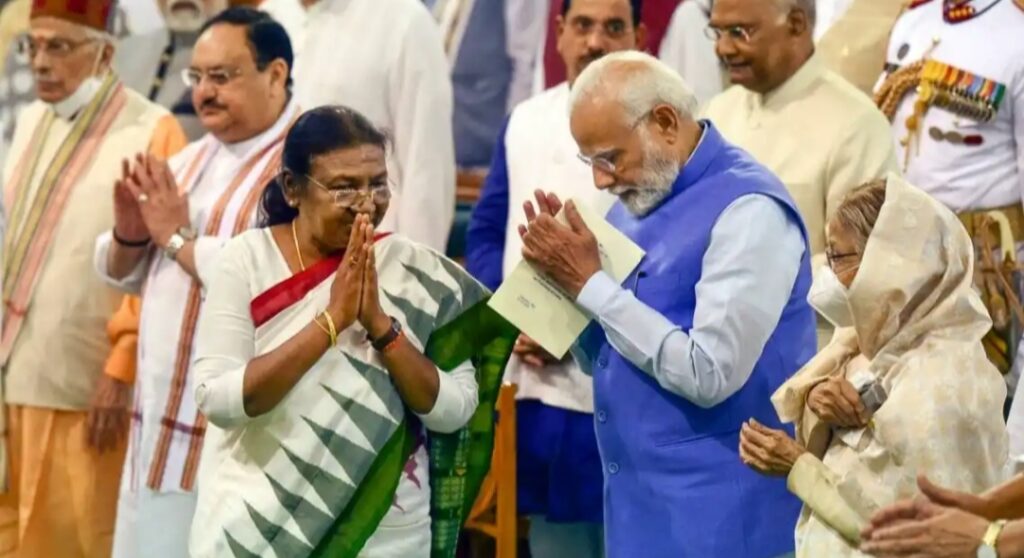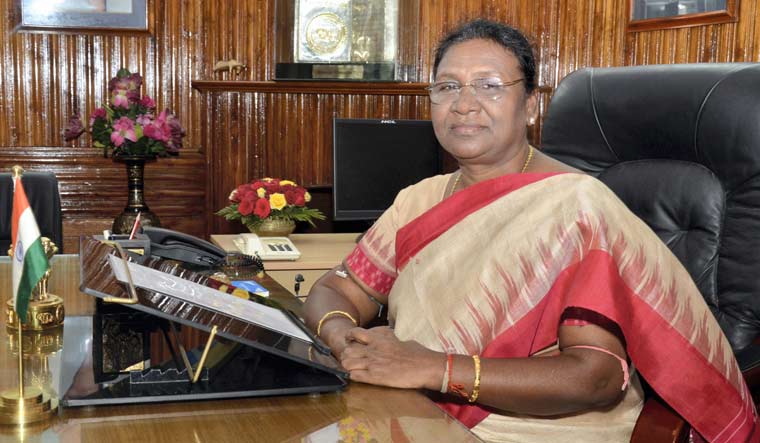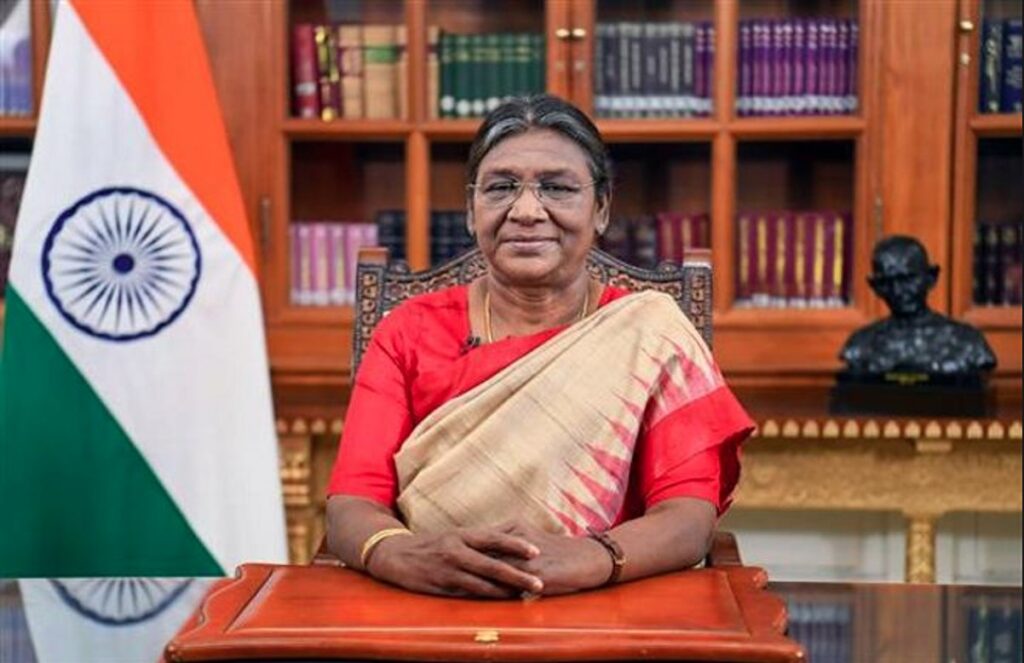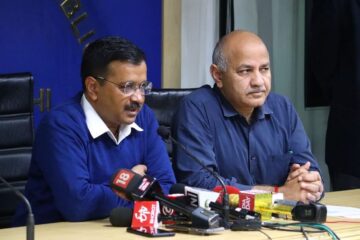India’s 1st tribal president elected Miss Draupadi Murmu . Murmu registered a historic win over her rival Yashwant Sinha in the Presidential election. She is the first woman tribal candidate and second woman in the country to occupy the highest office in the country .

Draupadi Murmu , the 15th Indian president , was born on June 20, 1958, in Delhi . As a member of Bharat Ratan Party , She is a Hindu nationalist .
When she won the most votes , Murmu made history the first taibal leader and second woman hold this position .
You May Like Reading Following News
Bharatiya Janata party chor dhoro jail voro programme.Malda
Shabar daughter Raminita set a record in Purulia
The election of Droupadi Murmu as India’s first tribal president marks a momentous chapter in the country’s political and social history. Her ascent to the highest constitutional office symbolizes not only a personal triumph but also a significant step forward for the representation of marginalized communities in India. This historic event underscores India’s commitment to inclusivity and diversity within its democratic framework.
Early Life and Background
Humble Beginnings
Droupadi Murmu was born on June 20, 1958, in the remote village of Uparbeda in the Mayurbhanj district of Odisha, one of India’s most underdeveloped regions. Despite the challenges, her family valued education, and she pursued her studies with determination.
Education and Career Beginnings
Murmu completed her bachelor’s degree in Arts from Ramadevi Women’s College in Bhubaneswar. She started her career as a teacher before transitioning into politics. Her initial professional experiences included working as a Junior Assistant in the Irrigation Department of the Government of Odisha and later as a teacher at the Sri Aurobindo Integral Education Centre in Rairangpur.
Political Journey Entry into Politics
Droupadi Murmu’s political career began in 1997 when she was elected as a councilor in the Rairangpur Nagar Panchayat. She soon joined the Bharatiya Janata Party (BJP) and held various positions within the party. Her dedication and leadership skills were recognized early on, leading to her election as the Vice-President of the BJP Scheduled Tribes Morcha.
Legislative and Ministerial Roles

Murmu was elected as a Member of the Legislative Assembly (MLA) from Rairangpur in Odisha for two consecutive terms (2000 and 2004). During her tenure, she served as the Minister of State with independent charge for Commerce and Transport and later for Fisheries and Animal Resources Development in the Odisha government.
Governor of Jharkhand
In 2015, Droupadi Murmu was appointed as the Governor of Jharkhand, making her the first woman to hold the position since the state’s formation in 2000. Her tenure as governor was marked by her efforts to promote education and employment among tribal communities.
Presidency: A Landmark Achievement
Election to the Highest Office
In July 2022, Droupadi Murmu was elected as the 15th President of India, becoming the first tribal woman to hold this prestigious office. Murmu’s presidency is not only a personal achievement but also a symbolic victory for tribal communities across India.
Vision and Priorities
As President, Droupadi Murmu has emphasized the importance of education, healthcare, and sustainable development for all, particularly for marginalized and tribal communities. She has advocated for policies that promote social justice, economic empowerment, and environmental sustainability. Her vision includes fostering unity and harmony in India’s diverse society while ensuring that the benefits of development reach every section of the population.
Impact and Significance
Empowerment of Tribal Communities
Droupadi Murmu’s rise to the presidency has had a profound impact on the morale and aspirations of tribal communities in India. Her presidency has given a voice to the voiceless, bringing attention to the issues and challenges faced by indigenous populations.
Promoting Inclusivity and Diversity
Murmu’s election has been a significant step toward promoting inclusivity and diversity in Indian politics. It reflects the country’s evolving democratic ethos, where the highest offices are accessible to individuals from all backgrounds, including those from historically marginalized communities. Her leadership is a testament to India’s commitment to social equity and the empowerment of its diverse population.
Role Model for Women
As the second woman to become the President of India, Droupadi Murmu serves as a role model for women across the nation. Her achievements highlight the potential for women to rise to positions of power and influence, regardless of their socio-economic background. Her presidency encourages young girls and women to pursue their dreams and contribute meaningfully to society.
Challenges and Future Prospects
Addressing Social Inequities
Despite the symbolic significance of her election, Droupadi Murmu faces the challenge of addressing deep-rooted social and economic inequities. Her tenure as president will require navigating complex political landscapes to advocate for policies that uplift marginalized communities and promote equitable development.
Balancing Tradition and Modernity
As a representative of tribal communities, Murmu embodies a blend of tradition and modernity. Her presidency provides an opportunity to bridge the gap between indigenous traditions. contemporary governance, fostering a greater understanding and integration of tribal culture within the broader national framework.

Strengthening Democratic Institutions
One of Murmu’s key responsibilities will be to uphold and strengthen India’s democratic institutions. Ensuring transparency, accountability, and integrity in governance. She will be crucial to maintaining public trust and promoting a more inclusive and just society.
Conclusion
Droupadi Murmu’s election as India’s first tribal president is a historic milestone that reflects the nation’s progress toward inclusivity and representation. Her journey from the remote villages of Odisha to the Rashtrapati Bhavan is a testament to her resilience, dedication, and commitment to public service.

Bimal Mardi is a Professional Content Writer. He works in First Santal Broadcast Network TV/ News channel in India. Bimal Mardi writes about Technology, Education and Tech Product Reviews




[…] INDIA’S 1ST TRIBAL PRESIDENT, DRAUPADI MURMU […]